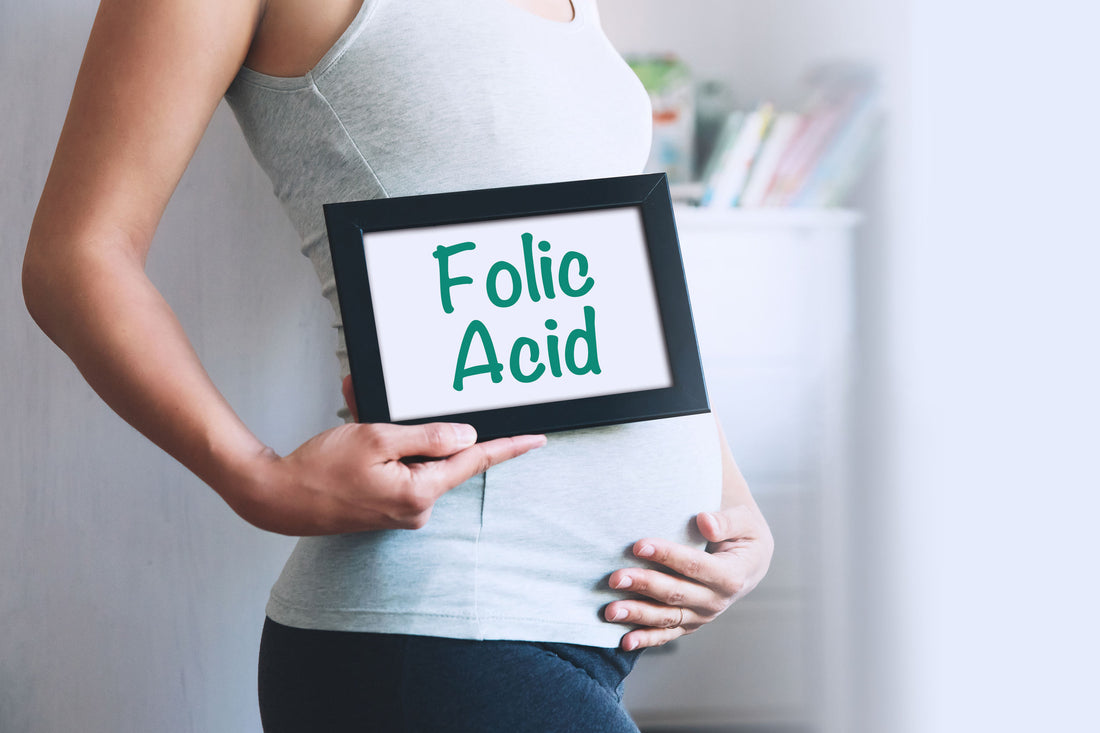Sometimes vitamins can be very similar, with small differences. Today, we are going to explore the differences between folate and folic acid, a question we receive from a lot of our customers.
FOLATE vs. FOLIC ACID COMPARISON
B9 Source
Folate and folic acid are both sources of the vitamin commonly referred to as "B9." However, they are different forms of B9.
Natural vs. Synthetic
Folate is a version of B9 that is extracted from food sources, and therefore, commonly referred to as "natural." However, folic acid is a readily available synthetic form of vitamin B9 that is commonly used in its place. The production of folic acid is done in an environment that makes it easy to control consistency and quality, and although it's often referred to as a "synthetic" version, that doesn't indicate a lower quality product. Folic acid is generally regarded as safe and effective and recommended for use by many health professionals.
Food Sources
Folate is naturally found in green leafy vegetables, citrus, and legumes (like beans and lentils.) However, for any foods that are stored for a period of time, folic acid provides a more stable source of B9, meaning that folic acid doesn't degrade in quality as quickly as folate over time.
Folate Absorption
Folate is converted into a bioactive form called 5-Methyltetrahydrofolate before it is available for your body to absorb into the bloodstream. Both folic acid and folate are able to convert into 5-Methyltetrahydrofolate.
Folic Acid & Pregnancy
Folic acid can be an important supplement for women who are planning to become pregnant and helps to reduce the risks of issues with the development of the spinal cord and brain in the fetus. The Institute of Medicine recommends that women of bearing age should consume 400 mcg of folic acid plus maintain a healthy diet containing folate. This recommendation has helped reduce the instances of neural tube defects (NTDs) like spina bifida by up to 70%, according to the American Pregnancy Association. Because of the reduction of health risks for babies, national programs were implemented in the United States to encourage folate fortification and reduce the number of affected children.
VitaCup uses folic acid to help provide a stable source of folate that will remain high in quality over time so that you can get the desired amount without degradation and after the heating process. For the specific amounts of folic acid and the folate values in each of our coffees and teas, please see the nutrition labels of our products on each product page.
